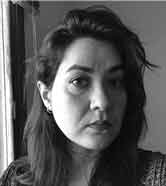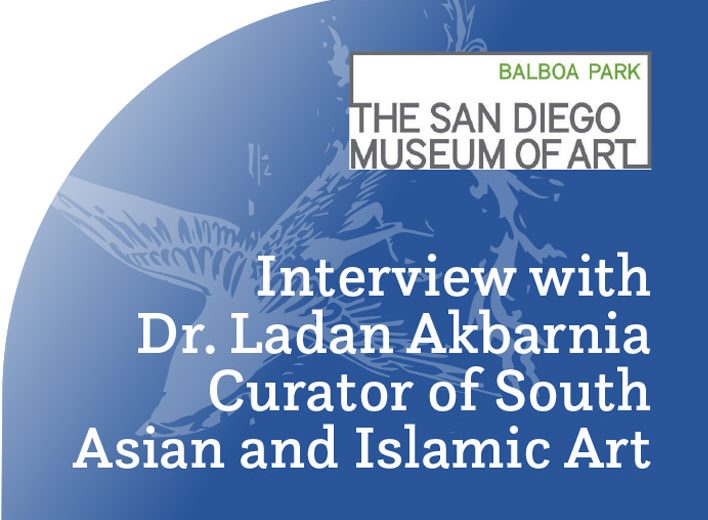University of Washington, Department of Middle Eastern Languages and Cultures (MELC)
 Hajar Hussaini Wins Mo Habib Translation Prize in Persian Poetry
Hajar Hussaini Wins Mo Habib Translation Prize in Persian Poetry
The Department of Middle Eastern Languages and Cultures reports with great enthusiasm that Hajar Hussaini has won the second cycle of the Mo Habib Translation Prize in Persian Literature for her translations of Maral Taheri’s verse. Hussaini and Taheri will be awarded $10,000 and $5,000, respectively, while the selection of Taheri’s work will be published by Deep Vellum in 2026. We congratulate both of them on this recognition and wish them continued success.
The judges describe why Taheri’s poetry finds such a compelling home in Hussaini’s English translations:
The poetry of Maral Taheri is provocative and disquieting—in the very best of ways. It inspires surrender, then kaleidoscopically enthralls. There is an undeniable urgency to Taheri’s poetic voice, her truths, and the way she tells them, with uncanny juxtapositions of love, sex, scripture, war, and other kinds of violence. Her translator, Hajar Hussaini, describes her work—unpublishable both in Iran and Afghanistan—as raw, ‘defiantly feminine’, and piercingly intelligent. Hussaini’s remarkable translations echo these qualities. They also betray a deep kinship with their poet, an intimate, almost intrinsic, familiarity with her experience and expression. In Hussaini’s agile renderings, Taheri’s verses cascade down the page, each one building upon, breaking down, and bounding off the last. The rhythm continues to reverberate long after you stop reading. The effect is nothing short of tremendous.
MELC received forty varied and exciting submissions from around the world, all focused on Persian poetry. This is twice as many as the number of proposals we received for the inaugural cycle last year which shows the steady growth of this prize. The Department of Middle Eastern Languages and Cultures thanks the Mo Habib Memorial Foundation for making this initiative possible and to the judges who carefully read and discussed the submissions.
The judges have identified two projects that merit honorable mention: Ashkaan Kashani’s proposal to translate Nima Yushij and Dr. Jane Mikkelson’s selection of 17th-century lyric poetry. They write:
Iran’s first modernist poet, Nima Yushij, is still an elusive figure in today’s international reception of Persian literature. With his linguistically rigorous yet creatively subversive approach to translation, Ashkaan Kashani promises to revive Nima’s experimental rhythms and imagery in exciting new forms in a project poised to revolutionize our understanding of the lyric aesthetics that dominated 20th-century Iran. Kashani’s renditions go far, in the most musically convincing of ways, while submitting to the ineffable beauty of Nima’s innovations and sensitively piercing the original texts with care and attention.
Dr. Jane Mikkelson’s translations of 17th-century Persian lyric poetry are a paragon of elegance and precision. Her perfectly chiseled renditions in English verse reveal the Translator’s profound knowledge of this little-studied and often misunderstood literary corpus. Without flattening the philosophical complexity and stylistic intricacy of the original texts, Jane Mikkelson makes them legible to contemporary readers in surprisingly enchanting ways.
In recognizing the outstanding value of their translations, the judges encourage Kashani and Mikkelson to continue working on their brilliant projects. MELC is grateful to the Mo Habib Memorial Foundation for making this initiative possible and the judges spent a great deal of time reading and deliberating among themselves. We look forward to working with Ms. Hussaini and Deep Vellum to ensure a bilingual selection of Maral Taheri’s poetry will soon be in the hands of English-language readers and listeners in print and audio book formats. The third cycle of the Mo Habib Translation Prize will be announced in September.
The Mo Habib Memorial Foundation celebrates the life and legacy of Mohammad Habib by supporting education, culture, and the arts in the Pacific Northwest and beyond. Born in Tehran in 1952, he moved to the U.S. in 1970 to attend college, eventually obtaining his B.S. and M.S. in Engineering and Construction Management from the University of Washington. For forty years, he worked as a project manager and structural engineer. Mohammad is survived by his wife, Superior Court Judge Susan Amini, and his son, Cyrus Habib, who served as the state’s sixteenth Lieutenant Governor prior to leaving public life to become a Jesuit.
Founded in 2013 in Dallas, Texas, Deep Vellum’s mission is to bring the world into conversation through literature. In its first five years, Deep Vellum published 90 works in translation by international writers and hosted dozens of literary events for Dallas residents.
——————————————————————————-
In 2022, the Department of Middle Eastern Languages and Cultures at the University of Washington in Seattle launched the Mo Habib Translation Prize in Persian Literature. This prize has been established in partnership with the Mo Habib Memorial Foundation and Deep Vellum Press to enable the publication and dissemination of Persian literary works that stand on their own in engaging English translation.
The initiative seeks to expand the readership of Persian literature in English, beyond academic audiences already with an interest in Persian speaking societies and communities. The winner of the inaugural cycle, announced last year, is Dr. Michelle Quay for translating the novel Woodwind Harmony in the Nighttime (Hamnava’i-ye shabaneh-ye orkestr-e chubha) by Reza Ghassemi. The novel will be published in English next year by Deep Vellum.
Aria Fani, PhD, Assistant Professor at UW
 Asylum Seeker
Asylum Seeker
Maral Taheri
translated from the Persian by Hajar Hussaini
I should have recited this poem before you fell to the ground
before the heart discarded October pomegranates in Tehran
before blowing our hair in the streets
because the audience’s authority rendered our bodies impartial
and it’s not nighttime on our side
on our side, there was a creature scattering salt on our blood current
and we had disputed our blood
we had disputed our soil
and we had paid our taxes off our veins to the passport police
we abandoned our bodies faster than a shrapnel
return to the blood!
return to your skin
which is devoid of memory
to the traces of your silver flakes in the streams of Tajrish
return to the language!
to its abrasion with the sharpness of a paper’s edge and nipple
expel your suppressing cells
through your tongue
expel your bare being
through your tongue
expel your alphabet’s clinical infection
through your tongue
expel the lingering lipstick on splinters of meaning
through your tongue
expel the pinkish vomit in the refugee camp
through your tongue
insert your head into your belly, then expel your unholy human
through your tongue
expel your socialist receipts
through your tongue
expel the clock set on your four different geographies
through your tongue
expel the reflection of the knife as you’re flaking your skin
through your tongue
expel the resemblances of others’ words in your own poems
through your tongue
expel your scheduled appointments with the bank, with Préfecture, and your lawyer
through your tongue
expel your blood on the corner of the public bathroom stall
through your tongue
return to the blood
for its permissible and auspicious
and don’t remember any one person
do not remember them
because lips have their own means of forgetting
an asylum seeker knows roasting hunted meat is more pleasant
how can an asylum seeker forget about having been kissed
her smile emerges from a frightening darkroom of individual deaths
however much it’s idiosyncratic, it’s public
I should have recited this poem before I fell to the ground
I have pinned collective suffering, and it hangs on my chest
I told the Arab man about the signs of heat in the collarbone he had touched
I called my body homeland and told the Romanian man about the silver flakes, how they can’t keep you warm
he threw his spear into the pond in the middle of the square to save his mother from her bedsore
at the time, we were holding onto the vegetable vessels of Italy
then to the fish’s mouth I said I have given ten more births than your mother
and I sank into my ashen blank skin
and I sank into my ashen blank tongue
the rain was not equal on all floors
the Ukrainian woman opened her umbrella
black people started dancing in a circle
the Arab people also danced
I sank into my ashen skin to the point
the sun brought me blood from the sliced streets
and the man, behind the desk, with a romantic French accent, kept whispering
go back to blood
because it’s permissible and auspicious


















